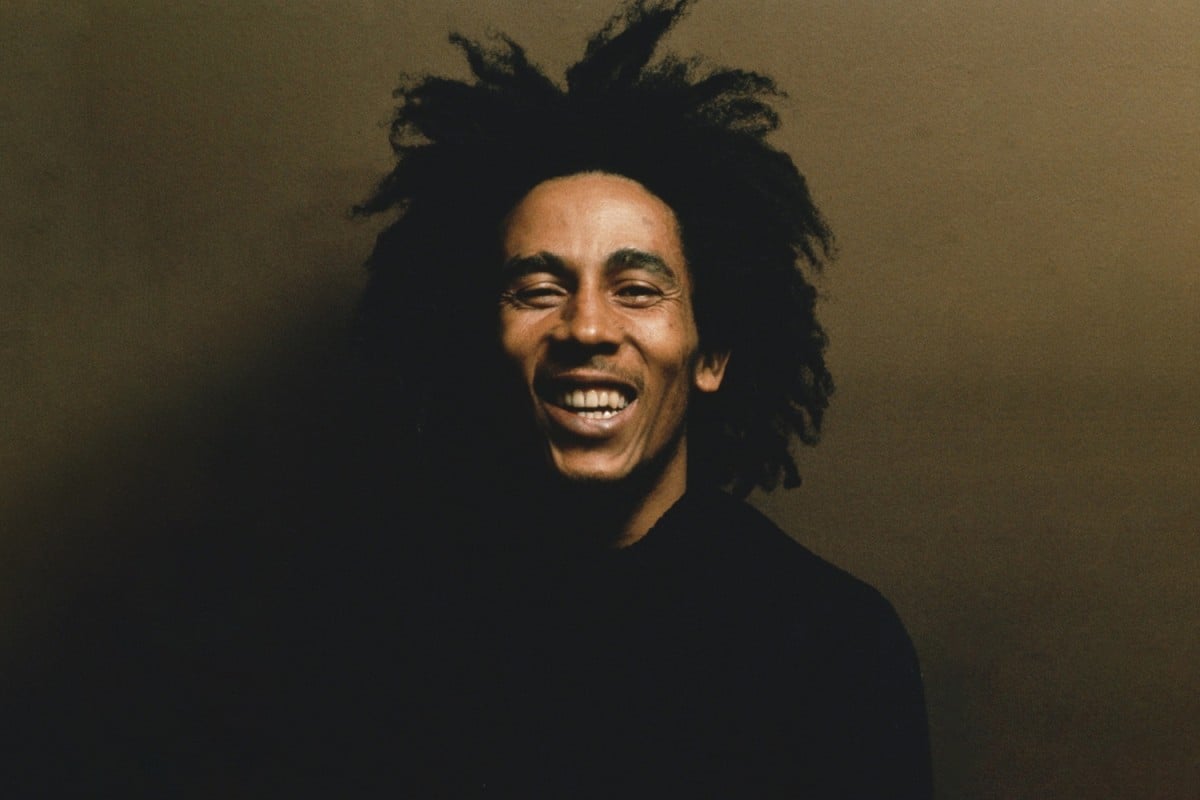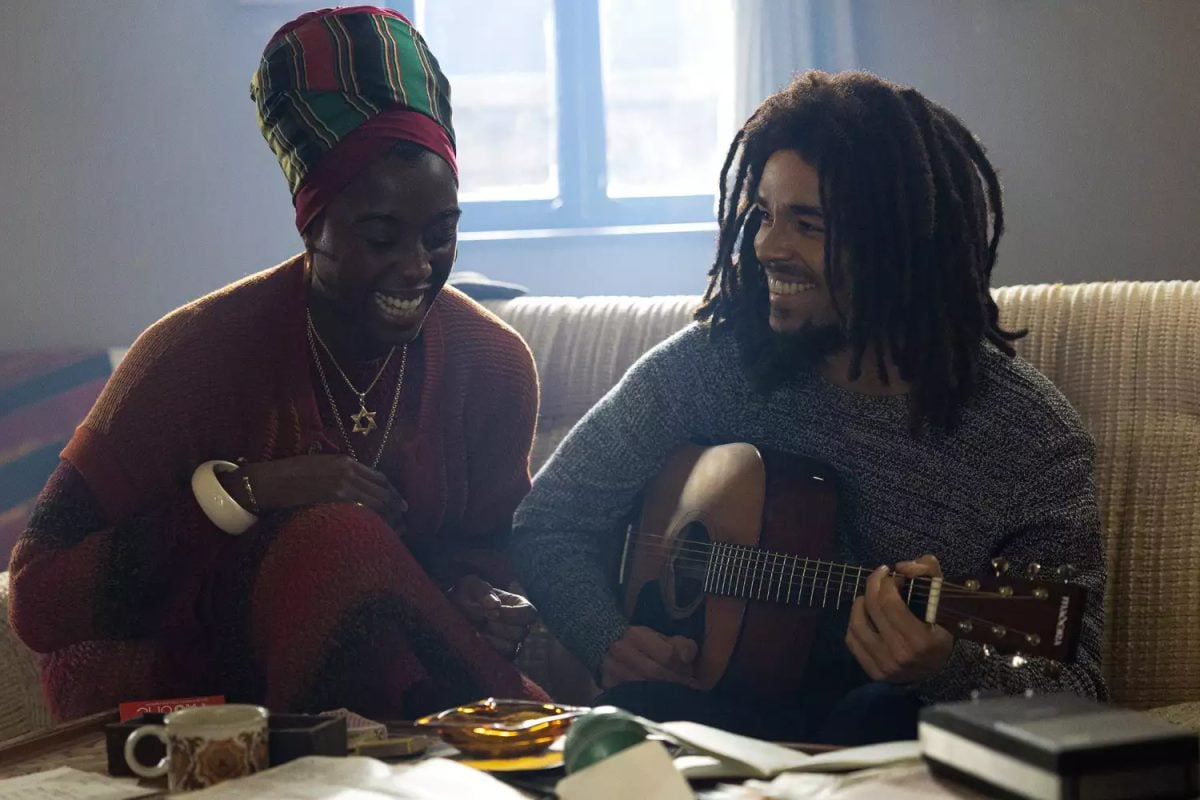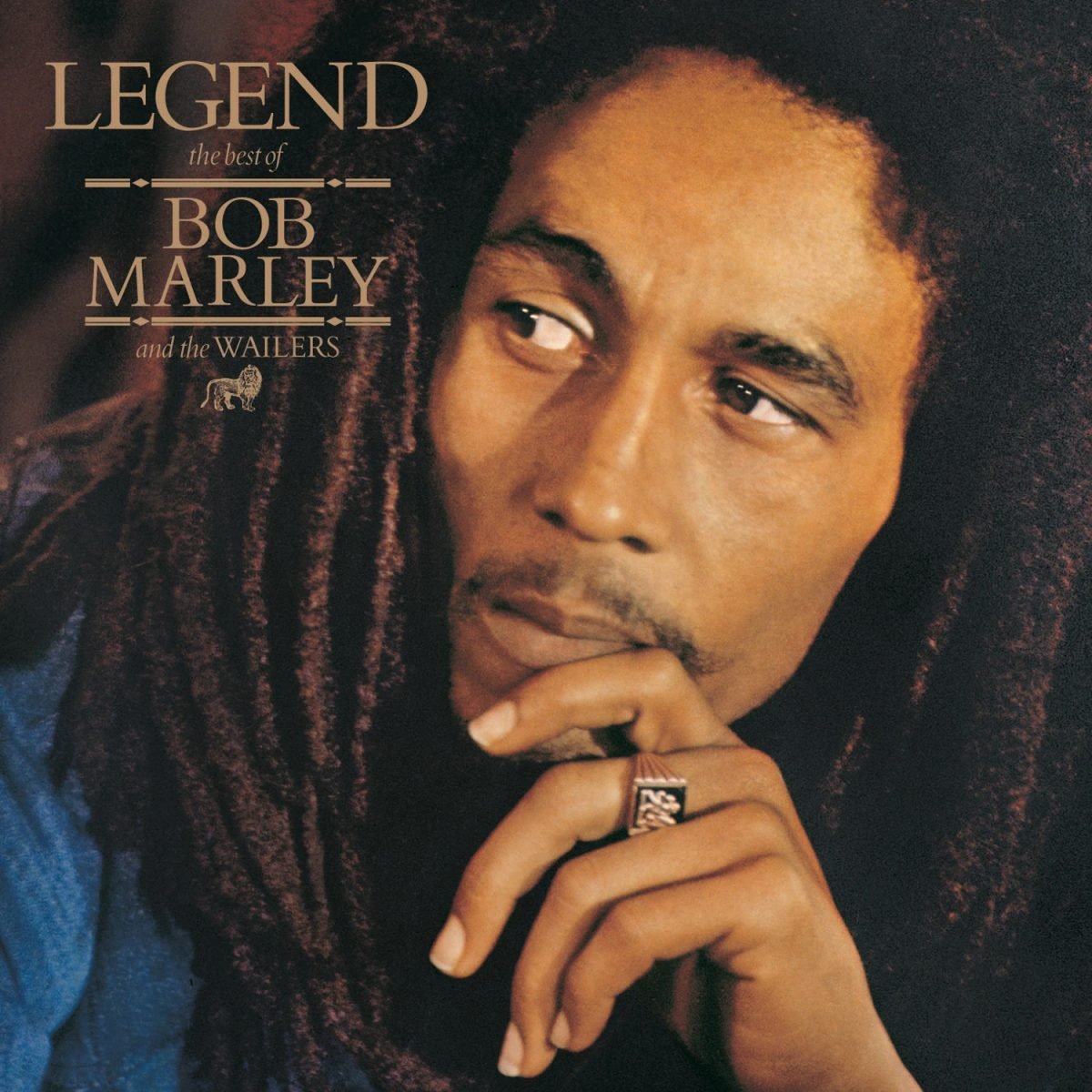Exclusive: Bob Marley’s Catalog Gets Massive Sales, Streaming Boost From ‘One Love’ Biopic

Paramount Pictures’ Bob Marley: One Love biopic has boosted sales and streams of the Reggae legend’s catalog in a major way.
The film, starring British actor Kingsley Ben-Adir as the late Jamaican icon, shrugged off poor reviews from critics to grab No. 1 at the Box Office for two consecutive weeks, per The Hollywood Reporter. It has gone well beyond expectations, crossing the $120 million mark ($72.2 million in the United States and $49.4 million internationally) on a $70 million production budget after its second weekend in theatres worldwide.
As US audiences rushed to theatres to see the film, they also fired up their streaming apps and listened to Marley’s music more than any other time in the last decade—giving his catalog a more than twofold increase in sales and on-demand streams during the full week following the film’s release.
The last time Bob Marley‘s music experienced such a surge in US consumption was in 2014 when the Google Play store discounted his greatest hits album, Legend: The Best Of Bob Marley and the Wailers, to 99 cents. (Google reportedly covered the full price ($8) during that promotion.)
‘Legend’
The 14-track Legend (1984), the crown jewel of Marley’s catalog, has reached new peaks on two Billboard charts in the second week of the film’s release.
On the Top Streaming Albums chart dated March 1, which tracks the most-streamed albums of the week in the US, the album is at No. 23, up from No. 44 last week. On the Billboard Top R&B/Hip-Hop Albums, Legend also registered a new peak at No. 8, up from No. 11 last week.
It is also currently at No. 1 on the Billboard Reggae Albums chart, where it has been for 215 non-consecutive weeks.
On the Billboard 200 chart, which ranks the top US albums across all genres, Legend is currently at No. 17, up from No. 38 before the film’s release. It had previously peaked at No. 5 on the chart during Google’s promotion in 2014.
According to data provided to DancehallMag from Billboard’s sales tracker Luminate, Legend recorded 22,000 in sales and streams, including 5,000 in pure album sales and 22 million streams, for the week ended February 15.
For the week ended February 22, it recorded another 30,000 units in sales and streams, including 7,000 in pure album sales and 30 million streams in the US.
Legend, which was certified 15X Platinum by the RIAA in 2014, has sold 18 million in sales and streams in the US, according to Luminate. This includes 13 million in pure album sales and 5 billion streams in the US as of February 22, 2024.
Meanwhile, in the United Kingdom, Legend has once again broken into the Top 10 on the UK Albums Chart, currently at No. 6. It last entered the Top 10 in August 2020, stalling at No. 9, and in September 2016, topping out at No. 5. Before that, it reached No. 7 during Google’s promotion in 2014.
The album had also spent 12 weeks at No. 1 on the UK chart following its release in 1984. It has spent a staggering 1,122 weeks on the chart (more than 21 years).
Marley’s ninth studio album, Exodus – from which much of the music used in the film was taken –has re-entered the UK Albums charts at No. 36, down from its peak at No. 8.
On the US Billboard Reggae Albums chart, the album has also re-entered at No. 4, after previously peaking at No. 3.

‘One Love’ Soundtracks
Additionally, two new albums attached the film, Bob Marley: One Love (Soundtrack) and Bob Marley: One Love (Music Inspired By The Film) are also making their way up the Reggae Albums chart.
Bob Marley: One Love (Soundtrack), which featured 17 tracks pulled from the albums Catch A Fire, Burnin, Rastaman Vibration, Exodus, and Kaya, is currently at No. 5, up from its debut at No. 10.
The soundtrack recorded 10,000 units in sales and streams for the week ended February 15 (including 200 pure album sales and 14 million streams) and 15,000 in sales and streams for the week ended February 22 (including 400 in pure album sales and 20 million streams).
Bob Marley: One Love (Music Inspired By The Film), which featured covers from artists like Skip Marley, Shenseea, Mystic Marley, Kacey Mulgraves, Daniel Caesar, and Wizkid, is currently at No. 6, up from its debut at No. 9.
The 10-track deluxe album recorded 2,000 units in sales and streams for the week ended February 15 (including 100 in pure album sales and 2 million streams in the US), and 2,000 units in sales and streams for the week ended February 22 (including 100 copies in pure album sales and 3 million streams in the US).
Entire Album Catalog
Bob Marley’s entire album catalog recorded 30,000 in sales and streaming equivalent units in the United States for the week ended February 15, which included the film’s Valentine’s Day premiere in the country. The numbers—which include 7,000 copies in pure album sales and 32 million streams— represent a 100% plus increase over the previous week.
For the week ended February 22, Marley’s album catalog registered another 43,000 in sales and streaming units, including 10,000 copies in pure album sales and 44 million streams.
These numbers have pushed Bob Marley And The Wailers to No. 25 on the Billboard Artist 100 chart, up from No. 46 last week.
In total, according to Luminate, Marley’s entire album catalog has recorded 37 million in sales and streaming in the US, including 30 million in pure album sales and 7.2 billion streams in the country as of February 22.
Which Songs Were Used In The Bob Marley: One Love Film?
Kingsley Ben-Adir, who worked intensively to capture Marley’s accent and mannerisms, also sang and played guitar in the film. His vocals were mixed in with Marley’s original recordings.
In all, the production involved re-recording 40 songs with help from Ziggy and Stephen Marley and musicians in their bands and The Wailers’ band, but only 22 tracks were ultimately included in the film.
That includes the 17 songs featured on the official soundtrack:
- “Get Up, Stand Up”
- “Roots, Rock, Reggae”
- “I Shot The Sheriff”
- “No More Trouble”
- “War / No More Trouble”
- “So Jah S’eh”
- “Natural Mystic”
- “Turn Your Lights Down Low”
- “Exodus”
- “Jamming”
- “Concrete Jungle”
- “No Woman, No Cry”
- “Three Little Birds”
- “Redemption Song”
- “One Love / People Get Ready”
- “Is This Love”
- “Rastaman Chant”
There were also five additional songs that were heard during the film but not included in the official soundtrack:
- “Lively Up Yourself”
- “Guiltiness”
- “It Hurts To Be Alone“
- “Simmer Down“
- “Selassie Is The Chapel”
According to Randy Spendlove, president of Worldwide Music and Publishing at Paramount Pictures, selecting the soundtrack was challenging due to Marley’s extensive catalog, requiring careful consideration of how each song fit into the narrative of his life at that time.
Another significant hurdle was obtaining music rights, which involved negotiations with various stakeholders, including Primary Wave Music Publishing (which bought an 80% share of Chris Blackwell’s stake in 2018), the Marley Estate, and Island Records (Universal Music).
“There were different companies who have different rights with the music,” Spendlove told Variety, but he explained it ultimately came down to timing.
“It was conveying the right message and making the movie for the right reasons. It was about bringing the music together, always in conjunction with the family and the pieces and parts was a big effort, but I think people realized it was the right time,” Spendlove said.
“We looked at all the music, some of it before ‘Exodus,’” Spendlove added. “As we told the story, and the story came together, songs came in and out of the cut as we tried to figure out how the narrative of the song and the lyrics fit where we are in a particular point of Bob’s life.”
Bob Marley: One Love, set between an assassination attempt on Marley in December 1976 and the Smile Jamaica concert, explored his journey to London to record his Exodus album and his return to Jamaica.

